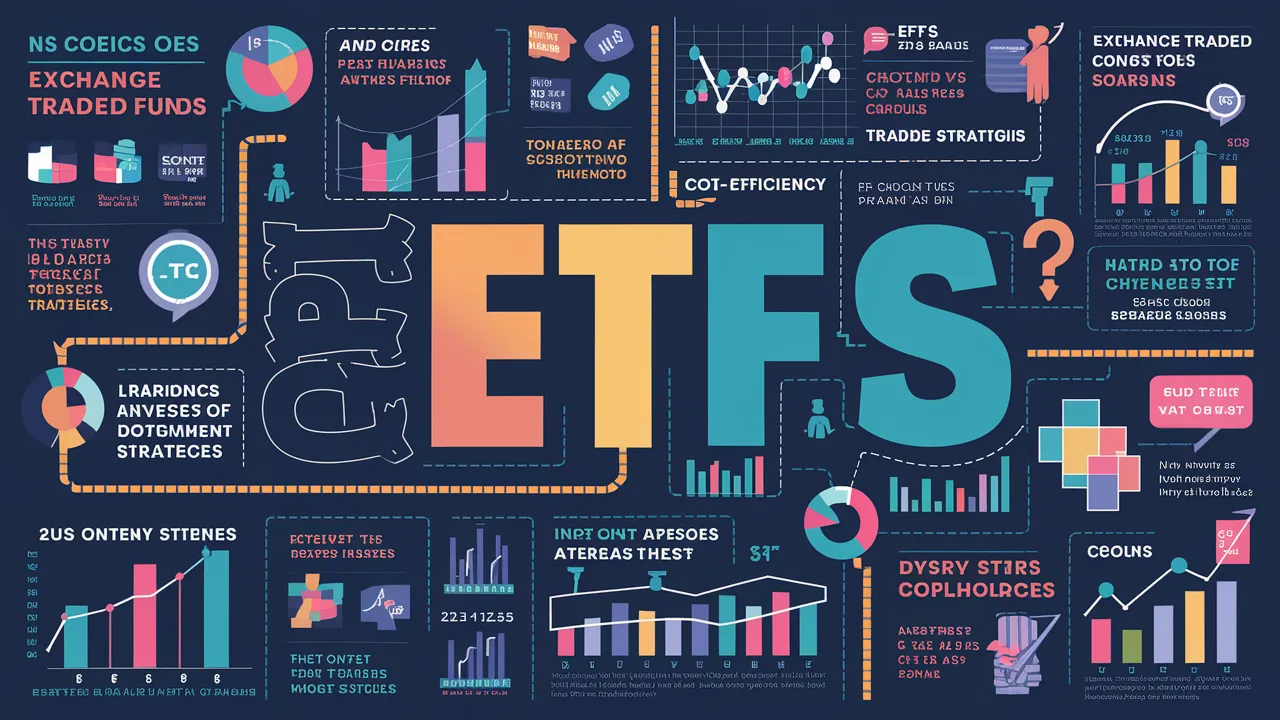Introduction to ETFs
In this section, we’ll introduce Exchange-Traded Funds (ETFs), explaining their basic concept and structure.
Understanding ETFs
Here, we’ll delve into what ETFs are and how they function as investment vehicles.
History and Evolution
This subsection will explore the origins and evolution of ETFs, providing context for their development.
Benefits of ETFs
This section will outline the various advantages that ETFs offer to investors.
Diversification
We’ll discuss how ETFs provide diversification benefits by investing in a basket of assets.
Cost-Efficiency
This subsection will explain how ETFs typically have lower fees compared to traditional mutual funds.
Liquidity
Here, we’ll highlight the liquidity advantages of ETFs, which trade on stock exchanges like individual stocks.
Transparency
We’ll explore how ETFs offer transparency regarding their holdings, allowing investors to know exactly what they’re investing in.
Flexibility
This subsection will discuss the flexibility of ETFs, which can be bought and sold throughout the trading day.
Strategies for Investing in ETFs
This section will provide insights into various strategies for incorporating ETFs into an investment portfolio.
Passive Investing
Here, we’ll explain the concept of passive investing with ETFs, which involves tracking a particular index.
Sector Rotation
We’ll discuss how investors can utilize sector rotation strategies with sector-specific ETFs to capitalize on market trends.
Dividend Investing
This subsection will explore how dividend-focused ETFs can be used to generate income while benefiting from potential capital appreciation.
Risk Management
Here, we’ll outline how investors can use ETFs to manage risk within their portfolios by diversifying across asset classes.
Conclusion
In conclusion, ETFs offer investors a range of benefits, including diversification, cost-efficiency, liquidity, transparency, and flexibility. By understanding these advantages and implementing appropriate strategies, investors can harness the power of ETFs to achieve their financial goals.
FAQs About ETFs
- Are ETFs suitable for beginner investors? ETFs can be suitable for investors of all levels due to their diversification and cost-efficiency.
- Can I invest in ETFs through my retirement account? Yes, many retirement accounts offer access to ETFs as part of their investment options.
- Do all ETFs track an index? While many ETFs track an index, there are also actively managed ETFs that aim to outperform the market.
- How often do ETFs pay dividends? The frequency of dividend payments depends on the underlying assets held by the ETF, ranging from quarterly to annually.
- Can I day trade ETFs? Yes, ETFs can be traded throughout the trading day, making them suitable for day trading strategies.
